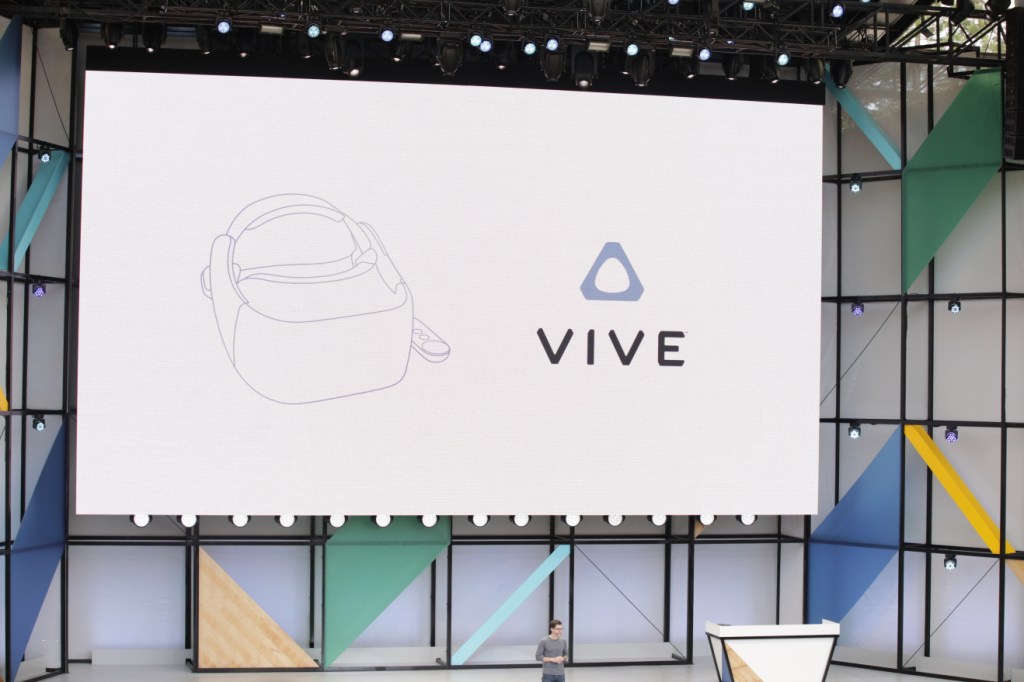One of the only questions I’ve asked HTC VR execs consistently over the past several months is whether the Daydream version of its upcoming standalone headset would ship on time in late 2017, they have consistently said it will, though now it seems as though the entire project has been cancelled.
HTC and Google both confirmed to TechCrunch that a Daydream-branded HTC standalone headset will no longer be coming to the U.S. market. Google initially announced the partnership back in May for a standalone headset from HTC based on its new WorldSense tracking technology.
“We still have a great relationship with Google, but will not be bringing a standalone device to the western markets on Daydream,” an HTC spokesperson told TechCrunch in a statement.
Confirmed, no Daydream standalone from HTC, but we remain great partners. https://t.co/t3RvgJIMUp
— Clay Bavor (@claybavor) November 14, 2017
This news comes as Facebook’s Oculus is breathing down the neck of the rest of the very small VR hardware market with aggressively priced loss leader products that don’t leave a ton of room for other companies hoping to make cash on hardware. At its developer conference last month, the company announced Oculus Go, a $199 standalone headset capable of playing stationery mobile titles from the Gear VR store.
HTC says it will be focusing its resources on a Qualcomm-powered standalone for the China market, which it is calling the Vive Focus. Pricing has not been disclosed.
Earlier this year, HTC was forced to drop the price of their Vive VR system from $799 to $599 after Oculus dramatically sliced the price of its similarly capable VR system from $798 to $399. While Oculus executives have outright noted that they are not particularly interested in making money off of hardware sales, there aren’t many other options for HTC which has done a poor job of becoming a platform company in the US despite being first-to-market.
While the US has been a slow struggle platform-wise for Vive, China has been a different story where the company has already grown its smartphone-based mobile VR brand thanks to a software launcher tied to its Viveport content store. At its Vive dev conference in Shanghai today, HTC announced the Vive Wave platform which pairs content development with syncing hardware partners behind their Viveport content store, which HTC is hoping to unify developers behind. The focus appears to be solely on China with this release as well.
“As the VR industry leader in China, it is our duty to help reduce market fragmentation and provide content developers with more ways to make money,” HTC Vive head Alvin Wang Graylin said in a statement regarding the news.
Beyond the Vive headset, Google had announced that they were also working with Lenovo on a wireless Daydream headset. Google confirmed that they will still be releasing a product with Lenovo this year.































Comment